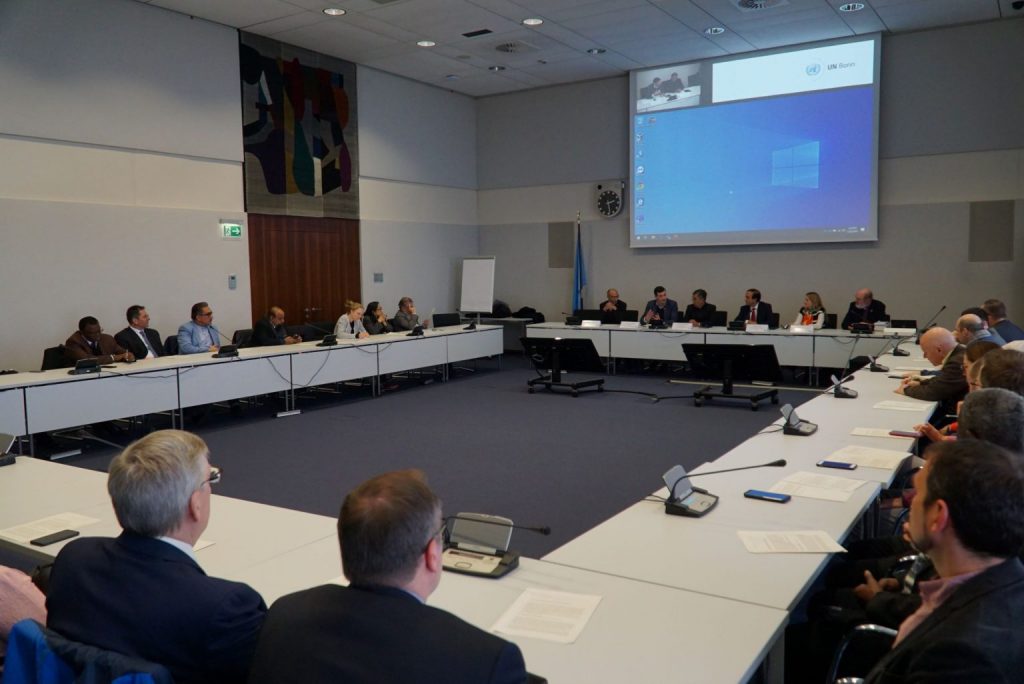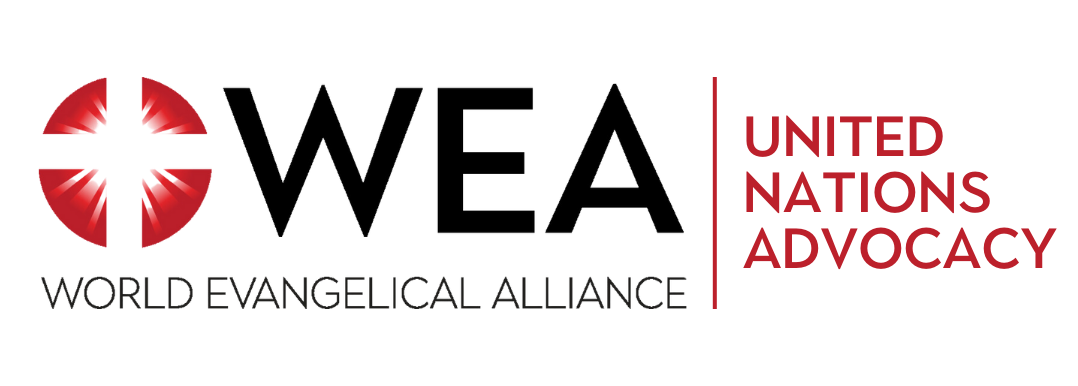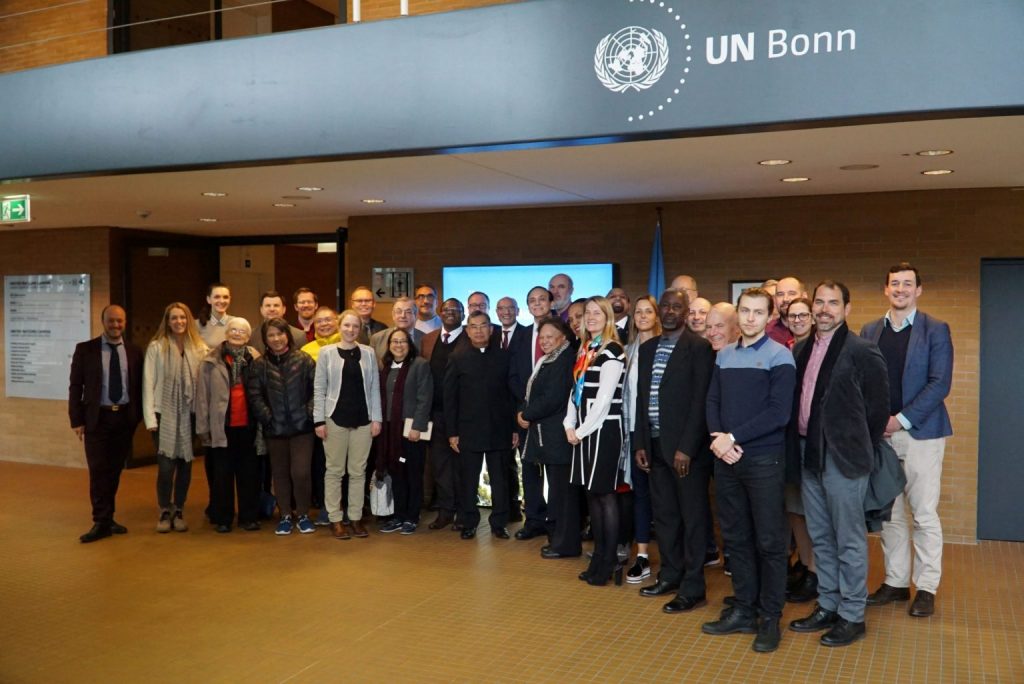Last week, the first ever joint session between the World Evangelical Alliance (WEA) and United Nations Agencies took place in Bonn, Germany. High-level WEA leaders met with representatives of the United Nations Environment Program (UNEP), the United Nations Convention to Combat Desertification (UNCCD) and the SDG Action Campaign. All three UN entities have offices in the German UN hub in Bonn. The session was part of the program of the WEA Global Leadership Team Meeting which took place from 25th to 27th of February in Bonn and convened the office of the Secretary General and department heads, leaders of Regional and National Alliances and WEA networks, also known as commissions, initiatives and task forces.
The host of the session, the Deputy Executive Secretary of UNCCD, started the session off by stating that the majority of sacred texts remind us that land is holy and needs to be protected. He continued elaborating that a value-based approach to land stewardship represents a unique added-value to the work of UNCCD, because religious leaders have the power to calling followers to change consumption and production patterns. The UNCCD is the sole legally binding international agreement linking environment and development to sustainable land management.
Afterwards, the Principal Coordinator of the Faith for Earth Initiative at the UN Environment Program, presented the approach of the Program to engage with faith-based organizations in the fight against environmental degradation. UNEP is one of the first UN Agencies which has adopted a strategy for their faith engagement, and WEA is a close partner in UNEP’s faith engagement. This engagement is based on the understanding that the concept of ‘stewardship of the earth’ is common to all religions. The UNEP representative recognized that many faith-based organizations already work towards a healthy environment. Therefore, UNEP considers faith-based organizations as very important partners in achieving the “green SDGs”, i.e. SDGs related to the environment, water and climate.
The presentation by the representative of the SDG Action Campaign visualized the activities of the campaign and the stakeholder groups which joined into the campaign. So far, faith-based organizations have played a minor role in the SDG Action Campaign. This is something to be changed and one outcome of the joint session is to plan a deeper collaboration between the SDG Action Campaign and WEA. WEA as a global network with connections to national and local levels in every part of the world holds a strong mobilizing power. Moreover, even if not explicitly phrased in the language of the SDGs, much of WEA’s work contributes to Sustainable Development, for example the fight against poverty, climate change and environmental degradation that many evangelical communities around the world take on in their daily charity work.
The members of the WEA Global Leadership Team responded very positively to the presentations by the UN representatives and identified many synergies. Matthias Boehning, WEA UN Liaison Officer in Bonn and Director of the WEA Sustainability Center, stated: “The World Evangelical Alliance aims at a structured dialogue and partnership with UN Agencies in order to jointly address relevant questions regarding sustainable development. Faith communities, particularly a large global network as the WEA, have unique resources, connections and outreach possibilities to contribute to achieving the SDGs”. Other WEA representatives thanked the UN colleagues and highlighted the connections between their work and the work of the UN in many fields of sustainable development.
The joint session between WEA and UN showed once more that faith-based organizations and multilateral UN agencies oftentimes work for the same goals, with the motivation to improve the lives of people on a healthy planet. While the world view that motivates the respective organizations might be different, the visions of a peaceful and healthy world are very similar. This provides a sound basis for fruitful cooperation between intergovernmental agencies and faith-based organizations in many areas of sustainable development. The fruitful and productive dialogue at the joint WEA-UN Session is a good basis for a long-term partnership. Because after all, natural resources do not have religious borders.
The World Evangelical Alliance (WEA) has put an increased strategic focus on engaging with United Nations Organizations/Agencies in relation to the Sustainable Development Goals/the Agenda 2030. WEA, as a global umbrella body, is active in almost all areas of sustainable development, ranging the fight against poverty, more and better education, to advocacy for human rights, particularly religious freedom. With its Creation Care Task Force and the WEA Sustainability Center, WEA is actively engaged in the fight against climate change, one of the current priority areas of engagement.


